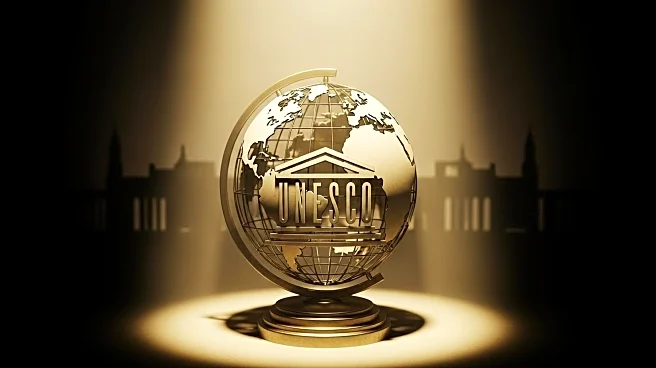What's Happening?
Khaled el-Enany, an Egyptian academic and former minister of antiquities, has been nominated by UNESCO's executive board to become the next director-general of the United Nations cultural agency. This nomination, which marks the potential appointment of the first director-general from the Arab world, will be voted on by all UNESCO member states on November 6 at the general conference in Samarkand, Uzbekistan. El-Enany, who has a strong background in Egyptology and has served in various cultural and governmental roles, is set to replace Audrey Azoulay, who has been in office since 2017. The nomination comes at a time when the United States has announced plans to withdraw from UNESCO, citing national interest concerns, which could lead to a significant budget shortfall for the organization.
Why It's Important?
The nomination of Khaled el-Enany as UNESCO chief is significant as it comes during a period of tension between the United States and the organization. The U.S. withdrawal, scheduled for December 31, 2026, could impact UNESCO's financial stability and its ability to carry out cultural and educational programs worldwide. El-Enany's potential leadership could influence the organization's direction, particularly in fostering international cooperation and addressing cultural heritage issues. His focus on depoliticizing technical deliberations and promoting dialogue may help bridge gaps between member states, including efforts to reintegrate the U.S. into UNESCO. This leadership change could also affect UNESCO's ongoing projects, such as the restoration of cultural sites in conflict zones like Ukraine and Iraq.
What's Next?
If elected, Khaled el-Enany will need to navigate the challenges posed by the U.S. withdrawal and work towards maintaining UNESCO's financial and operational stability. His proposed open-door policy and commitment to fostering consensus through dialogue will be crucial in addressing these challenges. The upcoming vote on November 6 will determine whether El-Enany will lead UNESCO and potentially shape its future strategies in cultural preservation and international collaboration.









